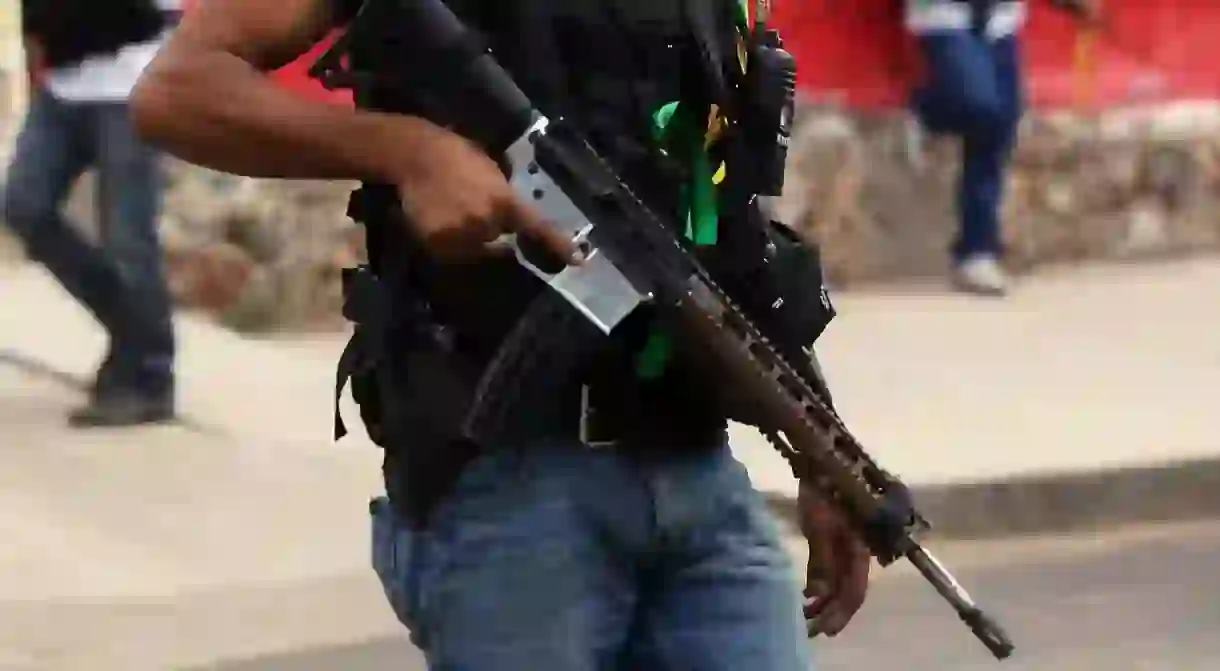How Did Mexico's Dream Destinations Become Murder Capitals?

Mexico is a world class tourist destination offering pristine beaches, gorgeous architecture and buzzing metropolitan hubs. But the drug war has claimed more than 200,000 lives since 2006 and violence has spread across the country, even scaring away visitors to famed beach resorts such as Acapulco and Los Cabos.
The latter destination has recently suffered a surge in violence and was named the world’s most violent city, according to a Mexican Citizens’ Council for Public Safety and Criminal Justice report.
Acapulco was once a glamorous getaway for iconic celebrities such as Frank Sinatra and John and Jackie Kennedy, but has since been blighted by violence. For four years running, Acapulco had the highest homicide rate in Mexico, earning it considerable notoriety as “Mexico’s murder capital.”

No longer beach havens
Los Cabos, a municipality that contains the resort destinations of Cabo San Lucas and neighboring San José del Cabo, has experienced a surge in violence since the capture of notorious Sinaloa Cartel leader Joaquín “El Chapo” Guzmán. Since the drug kingpin’s arrest in January 2016, violence has spiralled and competing factions currently battle for control of the region. So far, the killings – which are mostly linked to the drug war – have had little effect on tourism, which is the main source of income for the state. Nevertheless, the local tourist board only has to look Acapulco to see the potential damage that the city’s new reputation for violence might have.
Acapulco became a major Mexican resort during the 1940s, and its crescent shaped bay would fill with sunbathers every summer. The divers of La Quebrada are a world-famous attraction, performing daily shows for the public by plunging from the cliffs into the choppy sea below.
Yet the resort has struggled to attract foreign tourists in recent years. In January, the US State Department issued a “do not travel” warning for the resort. Several drug cartels and smaller gangs are known to operate in Acapulco and the violence is by no means limited to criminals. Some travelers have been caught up in gun battles or killed in cases of mistaken identity.
In September 2010, a group of 18 Mexican tourists were kidnapped and murdered. Their bodies were later discovered in a mass grave.
Business owners have also been targeted by gangs on the hunt for extortion money. Around 2,000 local businesses have closed in the past few years, according to the local Chamber of Commerce. Approximately 150 business owners were killed in Acapulco between January 2016 and July 2017.
Local government is keen to play down the gravity of the situation. Mexican tourists continue to visit the city during the summer, taking advantage of the inexpensive offers on hotel rooms.
But few deny that Acapulco’s international reputation has been tarnished. The once glitzy resort is one of the most powerful reminders that the Mexican government has failed to protect the country from the violence of the drug war.

A failed strategy
In December 2006, then-President Felipe Calderon deployed troops to parts of the country in an ill-fated attempt to stamp out organized crime. Since then, more than 200,000 people have been killed, and roughly 33,500 people disappeared, many of them victims of the ongoing conflict.
Mexico registered more than 23,000 murders in 2017, making it the deadliest year since records began.
Acapulco and Los Cabos are emblematic of the failed strategy that brought the country to this point. The cities were once dominated by a single cartel, but that power has since fragmented, creating a power vacuum.
Today, more than a dozen of these gangs operate in Acapulco, many of them focusing their attention on the resort’s civilian population.
Extortion, kidnapping and theft are now endemic in areas that were once tourist havens, and bloody battles between rival gangs and the authorities make international headlines.
With Mexico moving into elections in July this year, the ruling Institutional Revolutionary Party looks set to pay the price at the ballot box for its failure to tackle the country’s pressing security problems.














